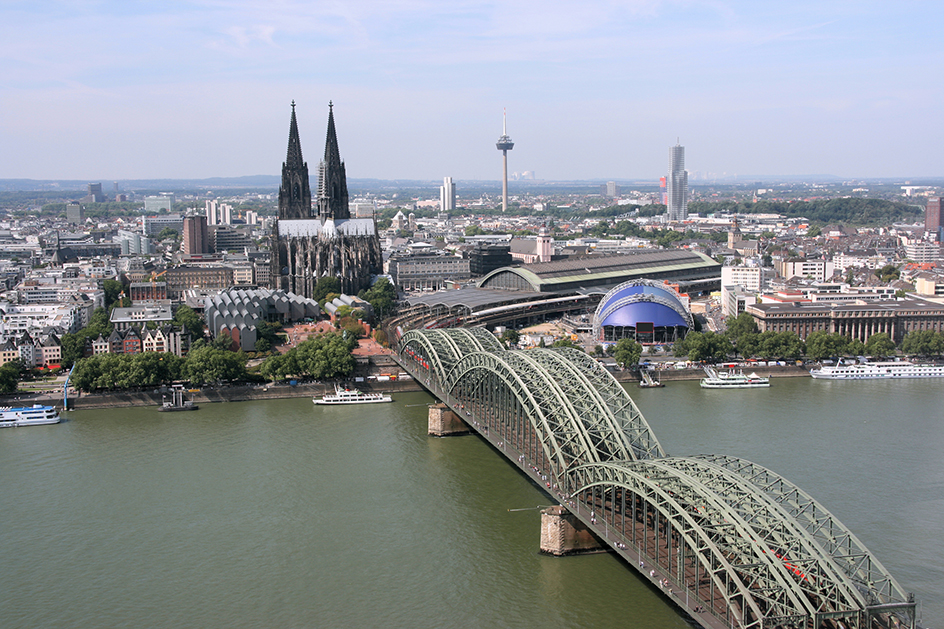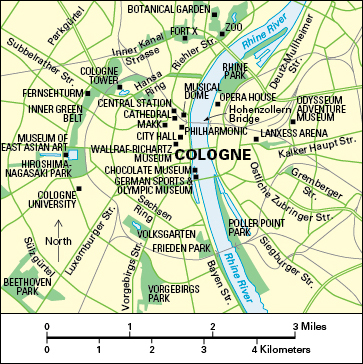Cologne << kuh LOHN >> (pop. 1,005,775) is a city in western Germany. Its German name is Köln. Cologne lies along the Rhine River. It is the largest city in the state of North Rhine-Westphalia and the chief industrial, commercial, and cultural center of the large region called the Rhineland.

The Ringstrassen, a network of semicircular roads, forms Cologne’s boundary line. These roads replaced the city’s medieval fortified walls. Most of Cologne’s commercial and residential areas lie on the west bank of the Rhine River. Most of the industrial areas are on the east bank. The city has numerous museums, theaters, libraries, and schools of higher education.
Cologne Cathedral is the city’s most famous landmark. A magnificent Gothic structure, the cathedral features two 515-foot (157-meter) towers, beautiful stained-glass windows, and lovely works of art. It was started in 1248, but was not completed until 1880. The cathedral is the largest Gothic church in northern Europe. Cologne’s numerous other medieval buildings include the old City Hall, which dates from the 1300’s. Cologne University, the city’s largest school of higher education, was founded in 1388.
Cologne’s major industries include metal processing and the production of automobiles, beer, chemicals, electric power, motors, pharmaceuticals, and petrochemicals. A world-famous perfume called eau de Cologne was originally made in Cologne and is now produced both there and elsewhere. Cologne has long been an important river port and railroad center, and it has a large, modern airport. It is also a center of the insurance business in Germany.

Roman soldiers established a settlement on the site of what is now Cologne not long before the birth of Jesus Christ. The Ubii, an ancient Germanic people, had lived there long before the Romans arrived. Roman officials made the settlement a colony in A.D. 50. Norman invaders destroyed Cologne during the late 800’s. The city was rebuilt in the 900’s. From then until the 1500’s, it prospered as an important member of the Holy Roman Empire. France occupied Cologne from 1794 to 1815, when Prussia took the city. In 1871, Cologne became part of the newly united nation of Germany.
During World War II (1939-1945), Allied bombing attacks destroyed many parts of Cologne and forced most of the residents to leave. However, most of the people returned after the war, and the destroyed and damaged areas were soon rebuilt.
